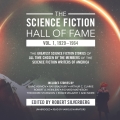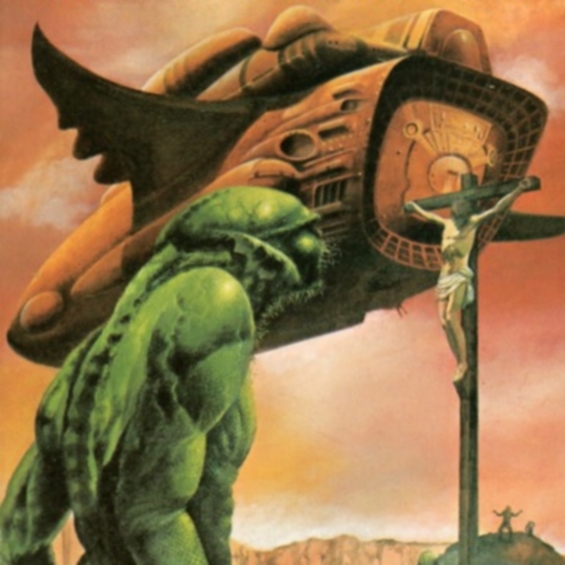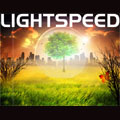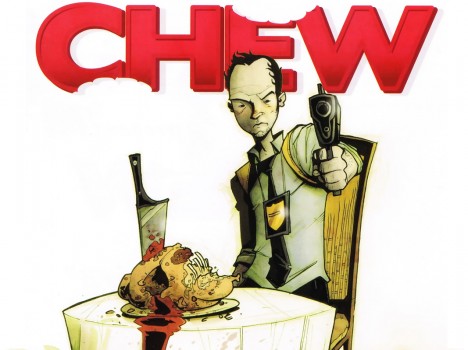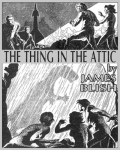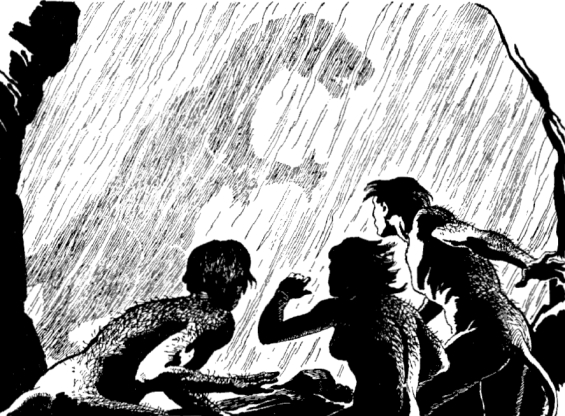Jesse, Will Emmons, Alex (Pulpcovers), and Jonathan Weichsel talk about Sheba by Jack Higgins
Talked about on today’s show:
Seven Pillars To Hell, Sheba, 1994, 1963, all the seven pillars into the desert, we see one we hear about two, the temple had pillars, the trail into the desert, temple to Ishtar, Astarte, Venus, a play on Seven Pillars Of Wisdom by T.E. Lawrence, pre-show jokes, hated this book, garbage, void, fluffy, airport lit, threads would get picked up and nothing would happen, Spanish fascists, Nazis, Hitler is busy inading Poland, part of the rewrite, a great script for a movie, Cain, get better again, cartoon Nazis trying to blow up the Suez Canal, worse and worse, judging it fairly harshly, a good novelization of Raiders Of The Lost Ark, fairly similar, events, Nazi base in the desert, blow up the plane, girl gets captured, trapped in the temple, no supernatural objects, suffered because of that, no metaphysical content, Jonathan is right about that, Casablanca (1942), stock characters, Sidney Greenstreet, Peter Lorre, all explained by airport fiction, kinda forgetable, Alastair MacLean but second tier, something lacking, discontinuities, a time jump, fast forwarded through the video, new destination, scrub forward, not Harry Potter style scene based fiction, in the rewrite, every man in the world loves an airplane, show yours, choose only one airplane?, how stupid the premise is, you could blow up a gate, block ships, fucked things up, a secret city base in the desert, I can revise my book, Raiders is kind of a trick, decieved, novelty, perfect execution, tricked us into liking it by being perfect, sequels, shows us the error of our mistake, all stories like this, they have to be like this or they’re the Quentin Tarantino let’s kill Hitler movie, paid attention to the history, biblbical historical supernatural element, blame too big of government, “top men”, Warehouse 13, back to the warehouse, in The Crystal Skull, a way to solve a problem, we can’t have the power of god in the hands of the allies, all the stuff is tricks, superhero villians, so WWII can happen, Lex Luthor has to exist, doomed to fail, stated discontinuities, WWII movies/books, this is not Eye Of The Needle, The Eagle Has Landed, the opposite of tricks, no craft, [Ken Follett], zone off, Will feels that, by the time the plane exploded, ready for the book to be over, just over 6 hours, 4 hours, 2 hour movie, heard how big Raiders was, Storm Island, Donald Sutherland, hates the British, Robert Duvall, the Valkyrie historical figure, the guy with the eyepatch, Jesse’s brain doesn’t work very well, Michael Caine plays a Nazi, kidnap Churchill, whole team is dead, nice Nazis accidently killed a little girl, this kind of genre, something that could have happened, has to fail, a much worse direction, Inglourious Basterds, made a promise of genre, we know that didn’t happen, a wrecking of genre, Overlord (2018), American paratroopers, a black NCO commanding white enlisted, executive order 9981, we changed history, the officer scene, super-compelling, see Hitler machine gunned very well, Once Upon A Time In Hollywood, saving a historical film actress, the day Jesus was born somebody shot him with a crossbow, post-modernism, breaking the rules, bending genres, being free of the rules, we’re beyond rules, 1900-1960, future obsessed, fuzzy science, high culture vs. pop culture, meaning is important, meaning is relative and open ended, it will say “yes”, who else would be like this?, Cronenberg, is he postmodern?, The Fly remake, Videodrome (1983), this book is not post-modern, the rules of a promise, if you put a rocketship on the cover of you book you’re a liar, those are bad people and bad books, people will buy it, they’re just liars, man on the run, Hitchcock, pretty good, semi-historical figure, attested to in history, blocks of stone from almost the period, her name, she only exists in the bible, outside of the bible, archaeological hints, scientifically, the rocks, stones and statues, we the reader, metaphor in fiction, an incomplete metaphor, why is it called Sheba?, a McGuffin, it doesn’t tie in, who doesn’t like the way it sounds?, political activities of the Kings of Sheba, Yemen, for some reason Jesse knows a little bit about Sheba, where Sheba is, dispute, two areas claim the queendom of Sheba, Somaliland the empty quarter, Jesse’s brain is really good at background work, The Nameless City by H.P. Lovecraft, Iram of the Pillars, enjoyable, unless you’re just fighting the weather, Salim, a corrupt German (or French) archaeologist, especially girls, they have the up the stakes, human trafficking, this whole genre, Clint Eastwood in a Nazi uniform, make a book out of it too, Where Eagles Dare, comes out of literature, airport style fiction, what your grandpa or dad was reading, cowboy hat, range in the title, a horse, it won’t matter, not a classic for the ages, hanging out with Hitler, going into Hitler’s office, the prologue was fun, should add to the resonance, that old poem by Shelley, Ozymandias, Hitler built a temple to himself, white sam browne belts, we can assume the MP-40s, MP-38, not enough Catalina action, the revision was badly done, a 30 year gap, died in 2022, any other historical errors, there are prototypes man, random bedouins, a hare brained scheme, Ritter had showed up in the desert, we like him too much, WWII movies, girls probably don’t like it as much, Guns Of Navarone, Force 10 From Navarone, good actors in it, murky, the plot is terrific, a great read, more like a Jonathan story, is it worth it?, two genres, A Bridge Too Far, The Longest Day, as close as we could ever come to being in Operation Market Garden, actors playing themselves, a huge cast, capture every bridge, one big push, Robert Redford in a canoe, Anthony Hopkins totally outgunned using his umbrella, actually happened, actual airplanes flying into the sky, late 60s, The Dirty Dozen, 1981, The Big Red One, the end of this era, Mark Hamill, Lee Marvin, a series of vignettes, German and Russian, Das Boot, 100 WWII movies that you’ve seen, Ilsa She Wolf Of The SS, Jesus Franco, a Will movie, Spaghetti, exploitation characters, the prologue reflects on this temple that’s gone, makes it better, this book is broken, ahistorical, this temple plot, combining the two, I hate Hitler, let’s see some Nazis, archaeology, not-competent, the Spanish ones, bored because he’s a courier, trying to carry about a plot, a comedic sense, you want them to fail, not that bright, watching this Cain fellow, an interesting story in there, gone back and forth, meet at some point, until they show up and blow up, a weirdly wasted character, learn how to fly a plane, sea-captain, he’s the Mary Sue, a bastard of a book, it doesn’t meld together, motivation, he’s gotta save the girl, simply in it for the money, $6000, the British archaeologist lived, we just get the wife, the Casablanca element, the Humphrey Bogart character, we’ve beat up on this book, a small axe to grand, no rule against cringe, only black character cannot speak, tried to write dialogue with him, a 1970s movie decision, the loyal retainer, he’s Chewbacca, like a dog, the Somali, the Arab, the Greek, the German, endlessly interesting utube channel, drills down on the history the number of SS legions, foreign legions, there’s an American one, Arabic legions, Danish, they’re trying to setup an international system, the communists, the Romans, not just for propagandic purposes, Spanish Nazis, the Greek Nazi, part of the criticism we can all have for this book, him being a very successful market, seems interested in his subject, generally gets things right, just so happens there’s a lot of men out there, do men think about the Roman Empire everyday?, WWII everyday, wish you were here Paul, building civilizations, empire building, standard sorta male mindset, in reaction to/in spite of, Spanish Civil War was the prelude, can’t do anything that matters, Harry Turtledove, getting out of the desert alive, stuff happens, fuel tank being emptied, the plane they crashed, the MP-40s being a little early, technically well done, stories in the corners, blocking the Suez Canal, drop mines, airport lit fiction plots, out of the desert for no reason, an excuse to getting into the dessert, seeing the queen on the wall, big king with a star of David, the guy’s name is Cain, mark of God cain, a killer, smuggler, pilot, ship’s captain, what isn’t he? real, the mythological archetypal American, very El Borak, Robert E. Howard constructs better, sentence by sentence, Kirby O’Donnel, The Fire Of Asshurbanipal, tsk tsk, bad Jesse, a really good audio drama [blue hours], a lot like this story, Bedouins, a forbidden city, death trap, giant jewel, Weird Tales, beautiful cover, a demon bound to the jewel, puts in the sorcery reluctantly, ancient cursed city lost in the desert, The Curse Of The Golden Skull, King Kull, millennia go by, Lemuria, some guy with a beard, a snake came out of the skull, supernaturally in the curse was upon his bones, that story didn’t sell, more of a vignette than anything else, any sorcerer can be killed with steel, a stout blade is a hardy incantation, the best WWII movies, designed to make Jesse mad, The Notebook, The Great Escape, a WWII movie with Bronson, Come And See, Germans rolling in, very biblical movie, number of tanks fielded and trucks burned, adopted by the Nazi, The Imitation Game, all 19 years old Dunkirk, Jojo Rabbit (2019), Scarlett Johansson as a Nazi, Stalingrad, Defiance, Black Book (2006), Soldier of Orange (1977), maybe it’s amazing, Empire Of The Sun, Christian Bale as a baby, The Best Years Of Our Lives (1946), America has changed so much, looks like a comedy, straight drama, William Wyler, Arrested Development, smiling, get weepy, ironic, the hardest years, Patton, Rescuers Down Under, Hardcore, The Last Run (1971), a play, directed by George C. Scott’s sons, gambling addiction, famous son, rented a huge theater, Jesse doesn’t brag enough, Jesse loves old movies, Letters From Iwo Jima, a pendant to Flags Of Our Fathers, The Dirty Dozen, very of its time, Jim Brown, John Cassavetes, much better WWII movies, the scene on the beach, Burt Lancaster having sex with a nice lady on the beach, the meme movie: Downfall, Hitler in the bunker movies, Hitler finds out about x, The Thin Red Line, Terrence Malick, an artsy WWII movie, the actor list, a good cast, a cast of white guys, Nick Nolte, directing the war from the boat, on an artsier scale, Life Is Beautiful, one they would show you in highschool, a good movie, Alex just doesn’t like really sad movies, funny bits, a funny looking guy, fun times in the holocaust, not a lot of laughs in Shindler’s List, Jerry Lewis’ lost clown in the holocaust movie, an offensive concept, [The Producers], Midway (2019), Pearl Harbor (2001), the other Bridge, Dennis Quaid, Randy Quaid, the handsome, Woody Harrelson plays an admiral, 3 hour youtube documentary, Woody Harrelson’s dad was involved in the assassination of JFK, Natural Born Killers, Das Boot, the reboot of Das Boot, in the gym, pretty good, adds in girls, an on shore element, girls working for the Nazis, Dutch them, Grave Of The Fireflies, hanging out with the anime Cirsova guys, older, born in 1978, one anime every 5 years, space western anime, Robotech, Casablanca, its basically a play, where do you think the French went?, technically set during WWII, not a battlefield movie, Quentin Tarantino’s top 11 movies of all time, Sunset Boulevard, dead in a Hollywood lady’s pool, Five Graves To Cairo (1943), five stops in the desert, a British tanker, crawls out of the desert, waitstaff in a hotel, based on a play, actual tanks on screen, Nazis come up with unecssarily complex schemes, it takes Americans to…, Robert Shaw plays a blonde SS panzer, The Battle Of The Bulge, The Bridge On The River Kwai, 1957 movie starring Obi Wan Kenobi, a biopic about the actor, a WWII vet, Pierre Boullet, Saving Private Ryan, a good beach scene, the rest of it is terrible, very solid, a lot of movies have plots, Tom Hanks is ok, non-threatening, Greyhound (2020), based on a C.S. Forester, really nice low stakes, a pattern, Jonathan noticed a pattern, WWII battles, wants to be a movie, shooting, hardware, aircraft, support the invasion of Poland, set before WWII, Raiders is not a WWII movie, one of the plans, keep these guys in prison, death march them, some criteria, fill in the holes somewhere, The Man Who Never Was (1956), homeless man, remade it recently, not a better movie, some up and coming officer with a limp and an eye-patch, same plot as Where Eagles Dare, a double bluff, the plans for D-Day, recapture or kill, spill the beans, if they make computer game levels out of it, Wolfenstein: Enemy Territory, give it away for free, just a multiplayer, The Guns of Navarone (1961) map, Where Eagles Dare, his son said, my dad is really depressed, best WWII movies, high on the list, a lot going on, best WWII movie not on the list, small stakes, not a D-Day movie, get some men off an island, just go around Crete, fixed gun emplacement on a beach, a really good film, tomb raiding book, Easy Go, missed every John Lange book, a lot like Anthony Quinn’s character in Guns Of Navarone, half-greek half-german?, his mother was a whore, before the shore, you never read them, how any of them is relevant to the book except as a title, to tie in as a metaphor, King James, 1 Kings 10, 29 sentences, punctuation, the name of the Lord, prove him with hard questions, the lovely Robert E. Howard language, went back in time, camels and bare spices, when she was come, communed with him, not anything hid from the king, where he told her not, the meat of his table, unto the house of the Lord, no more spirit in him, howbeit, behold the half was not told me, thy wisdom, hear thy wisdom, because the Lord loved Israel forever, an hundred and twenty talents of gold, the navy also of Ophir, almug trees, pillars for the house of the lord, psalteries for singers, all her desire, royal bounty, she and her servants, beside that, in the forest of Lebanon, another archaeological thing we can dig up, she’s just there to show how good Solomon is, inferences, a kingdom in Africa somewhere, Song Of Songs, the two disputes, the pretty part of the Bible, good reading, sexy reading, sexy reading is important, beautiful art, there was good writing in here, bastardized, a thirty year gap, something we’ve seen, King Solomon’s Mines, hokey romance, people shooting at each other, one of the malest books, true story, a very male writer, by and for dudes who watched the History Channel, the WWII channel, The World At War, here’s what’s happening, WWII by tweets, here’s what’s happening in the war, this is what happened, leaving tons of stuff out, Russia invades Poland, leaves out the context, if California invaded Oregon, boats and airplanes, borders that are always moving back and forth, in bed with Hitler, dig into this again, maybe they want to be allies, the Molotov–Ribbentrop pact, hidden pacts, we’re gonna defend France, France, we got your back, start with a sketch, forget about the pejorative part of it, drill down, really crazy details, Hitler’s Bodyguard, Churchill’s Bodyguard, protagonist from a men’s fiction novel, a WWII movie, someone on twitter reviewed it, Paperback Warrior, I’ll read that, response to Dial Of Destiny, it is a fun book, explores a part of the world not a lot of books are set in, Arabia during WWII, searching for Sheba, a Lost City with sentient gorillas, a tomb full of treasure, except for that one necklace, the femme fatale shows up looking for her husband, reinforcing the WWII stereotype, Son Of Kong (1933), giant gorilla movie, not a jewel movie, hold the girl or hold the stones, she doesn’t and she dies, Reading, Short And Deep, a Bros. Grimm story, The Woman In The Wood, tap the tree twice, cup of milk, friends with the bird, hollow tree with a door in it, witch lady in there, go into the back room, a table full of rings, pushes past the witch in the little house, the curse lifted, Indiana Jones And The Last Crusade, this is the cup of a carpenter, lifted straight out of movies, or the Bible, antikythera mechanism, another treasure hunt movie, Donald Pleasence as a Nazi, The Treasure Of The Amazon (1985), Treasure Of The Sierra Madre (1984), Cannibal Holocaust (1980), he’s a lot of fun, topless natives all over the place, exploitation feel, the bag of jewels, just sand, trick em all, gets the jewels at the end, that was kinda messed up, you can just kill somebody, that’s kinda messed up of you, a really cool dude, sounds like a boy movie, based on actual facts that occurred in 1958, Gringo, Bradford Dillman, Marathon Man (1976), Lawrence Olivier, High Risk (1981), Triple Frontier (2019), James Brolin, Lindsay Wagner, Cleavon Little, James Coburn, Ernest Borgnine and Anthony Quinn, drug lord, go to Hawaii and film this movie, good movies that are low rated, Tubi, Midnight Pulp, Shudder, Tubi is owned by Fox, Assault On Precinct 13 (1976), drop everything your doing, Siege (1983), evil presentism, understand, when talking about silent movies, silent films are more work, people don’t like work, half lazy, you’re on an airplane, Thomas Burnett Swann, saying you love farts, Safety Last (1923), The Lost World (1925), that guy’s an athlete, Antonio Banderas, how could you expect a movie from the dawn of movies, 1920, the 1990s is the problem, charismatic, Catherine Zeta Jones, Michael Douglas’ wife, a nice digression, Jesse’s thoughts on what makes a WWII movie, some books are designed to be movies, spec for a movie, the storyboard, why didn’t he just re-release it?, Stephen King, he’s a shitlib now, he had to fix it, he’s not Richard Bachman anymore, The Hunt For Red October, Jack Ryan, TOM CLANCY, dead for 10 years, still an executive producer, Eartha Kitt, Dirk Pitt, fundamentally broken, the girl plot, the promise of blowing up the canal, The Eagle Has Landed, Kelly’s Heroes (1970), 9th novel out of 75, more successful better selling pen-name, a drawer novel, a retelling of Of Mice And Men with a kidnapping, poured shitlib sauce all over it, famously right wing?, both parties are in favour of war, what do you mean when you say right wing, Steinbeck, the distribution of wealth, the ultra wealthy are against the distribution of their wealth, old money vs. new money, JFK to 9/11: Everything Is a Rich Man’s Trick (2014), George Herbert Walker Bush, the head of the CIA, 1963, his middle names, those are the people who run the state, WWI or not, let’s invest in Hitler, Henry Ford, full size painting of Henry Ford, IBM, Hitler used IBM, the Hollerith counting machines, James Tiptree, Shakespeare’s Planet, The Night Land, a lot of wading through a lot of kissing, mostly kissing, pining for kissing, 6 hours and 12 minutes, one is very very genre, one is very very experimental, a long tradition vs. pioneering, fantasy, Heavy Metal magazine, power armour, chainsaw lance, William Hope Hodgson, The House On The Borderland, James M. Cain wrote it, a super-good read, trippin balls, fishing trip in Ireland, a crevasse going into the Earth, assaulted by pigmen, sister is sleeping, his dog turns to dust, Lovecraft before Lovecraft, skulls being boiled, the whole concept of the hero, reject the idea completely, grown, the squeecore, let’s eat food and talk about snappy dialogue, the books that win Hugos, fiction inspired by Joss Whedon, perhaps a little uncharitable here and there, they all have MFAs, go to Clarion and pay the $6000 to be in the union, pal around enough, slip up and say something racist, a real phenomenon, changing your ways, buy a Hugo on ebay, how you gonna stop someone, you could get sued, products you can’t buy on ebay, you can’t buy an oscar, a rocketship, trade her some masters of the universe in the spot where one of her broken Hugos was, Your Haploid Heart, The Werewolf Principle, Project Mastodon, The World That Couldn’t Be, Our Children’s Children, thriving tribes of genderless natives, Gavin Duncan didn’t care, the berries cured mental illness, ten rows of vua, dead friend Gregg Margarite, LibriVox, Hellhounds Of The Cosmos, conflict, internal conflict, peach pie vs. apple pie, just a place and a setting and a story, stories with no conflict, that’s not a story that’s a display, no money for pizza, no problem, The Gift Of The Magi by O. Henry, the pornographic Gift Of The Magi, three wise men show up at the door with a pizza, well after the holidays, original art, who doesn’t like Clifford Simak?, everyone should, the way Douglas Adams, since I was a teenager, the right age for it, doesn’t hold up too well as an adult, get to the fucking point, getting annoyed, flying by the seat of his pants, the concepts are pretty heady, it helps to be young and thinking everything is dull, fun and hilarious, a frictionless surface, old science fiction story, No More Friction [by David H. Keller], Portals Of Tomorrow edited by August Derleth, it feels perfect, can’t stop rubbing it, do a double, Weinbaum is Mr. Sparks, an army psychiatrist, Death By Snu Snu, Weird Tales, psychologically deep, about writing, reality changes, The Hypnoglyph by John Ciardi, how short is it?, page 3 to 15, never ever have to take a show down, the Weinbaum list, had he not died of cancer he’d have been bigger than Heinlein, John Ciardi, actual 54, A Grocery Of Limericks, procastinating projects, Justified, very Elmore Leonard, Raylan, his last book, a cash grab, set in Kentucky, Graham Yost, TV Ontario, a movie family, arcturian space crystal, a cat likes to be stroked, tropism, every surface of the body, innately happy, objects for rubbing, old Chinese medicine, curio stuff, netsuke, chairs irresistible to the buttocks, sexual potency, his last child was born when he was 84, good dreams, the natural tactile organ, it is pleasant, pleasure is absolutely irresistible, I want less than you do, a curious coincidence, poisonous cheroots, do we collect so we can tell yarns, I’ll collect you, a new audience a new opportunity, the humidor, sachets, a terrific story so far, denubian brandy, a pause before the yarn that no story teller can omit, last blast into space, killed the wanderlust, being filthy rich is hardly the worst fate imaginable, an asteroid belt just popping, just an asteroid belt, pure diamond, federation prize money, a hunting implement, a snare, there are queerer things than that in space, a culture was founded on it, you’re not ready to believe, a yarn’s a yarn, that’s what space is, the constant reoccurrance of the incredible, unless you’ve got a prehensile hand and supra-orbital arch, the hand is good for picking things up, examining them, beginning to get ideas, an ungulate couldn’t use a tool in a billion years, that’s the sort of argument that gets hot in space, sidehumans, we didn’t make a report, as if running an inventory, buried in thought, coming up from a caveshaft, over the little polished dimple, the treasure room, what a lovely target I’ve made for a blackmailer, terrans can mate, I seem to be beyond surprise at this point, such lush pickings, still stroking the thing, too sound, reasonably proximate common ancestor, convergent evolution, without a common ancestor, deep space, the polished thing in his hand, to get back to DK-8, the hair and the skin structure, perpetually misty, all tropical, a fur covering, diffuse sunrays, die of suburn, nature always has a trick of trying to deal two cards at once, a tremendously developed tactile sense, their tropisms, it simply cannot stop, down into and over, a tactile science, tool culture, tactile culture, a rigid tribal matriarchy, working up a little voodoo, tactile gratification, they grow incredibly obese, a survival characteristic, such perfect control of their skin surfaces, strangely well proportioned, such hard wood, grainless, a huge seed, something like an avocado nut, extremely hard, then men set them out in the forest, these gadgets take care of all of that, they just can’t stop, the ruling clan of women, the slaughtering compound, his politeness was unfaltering, the men used to have unmanageable spells, hypnotize them, stops thrusting, breeding the life-wish out of the males, hardly enough men left to work the traps, the tribal leaders, new vigorous males, fresh blood for the lifestream, why I came back alone, the only male ever to leave DK-8, never, really, left, it, a puff of smoke, his eyes remained fixed straight ahead, only the fingers of his right hand continued to move, a door swung open, something huge and pale, a very Jonathan story, first sold story Going Native, humans and aliens mating, your cheroot is getting to you, getting over the covid cough, human in a legal sense, no matter how much they look human, anthropologist are busy learning if they can mate, a real challenge, complicated taboos, one species committing genoicide against the other, you like autism, autism in fiction, the OCD, not internal, an external force, The Most Dangerous Game by Richard Connell, August Derleth, the best of 53, Philip K. Dick, Robert Sheckley, Alfred Bester, Margaret St. Clair, Henry James, Anthony Boucher, James Blish, Mildred Clingerman, Clifford D. Simak, every story is a winner, such a good year, in future episodes, Anthony Boucher, a trilogy of novellas, One In Three Hundred by J.T. McIntosh, Earth is going to be destroyed, at least the first one is public domain, the government of the world, now we all gotta go to space, all going to go to Mars, one random dude, the most worthy people, elderly folk has wisdom, Orphans Of The Sky, piloting it from Earth to Mars, they give the rich people the good ships, One Too Many, abusing the comparison, reminds me of Poe, structured like a Poe story, The Cask Of Amontillado, little jokes about it, Behind The Curtain by Francis Stevens, very Poe, very sexual, getting his alien girlfriend a man, not prudish, psycho-sexual, use this piece of wood, a fidget spinner, it saw the future, very autistic, hypnosis is a very 50s thing, reading more David H. Keller, psychological depth, Binding Deluxe, The Little Husbands, a male bookbinders club, they’re all misogynists, of all the men who were mean to me, kinda sexy, Encyclopedia Britannica, one letter of the alphabet is missing, likes to see men tied up, tattoo on his back, turned into books, a subset, always got a wife going on, set in Africa, a forgotten writer, he’s on the second tier, Nictzin Dyalhis, a Weinbaum guy, A Martian Odyssey, a sequel, Worlds Of Weird, The Sapphire Goddess, Slaughter Of the Innocents, Weird Tales stock characters, not written for print, not hearing a strong preference, Sam Moskowitz, The Lotus Eaters, all of Weinbaum’s writing, The Hidden Planet, Donald A. Wollheim, Robert E. Howard, Frank Belknap Long, need short stories, enough time to discuss, The Sea-Thing, Giants In The Sky, really weird, the k is silent, The Horror Expert, The Man With A Thousand Legs, Mississippi Saucer, The Dog-Eared God, The Man From Time, The Man The Martians Made, The Ocean Leech, a sea-vampire story, The Sky Trap, The Timeless Ones, the pulp crew, the Cirsova-sphere, Asimov’s got good short stories, a boy who speaks with badgers, 1975, is this how you identify, getting into Avicenna, Canadian farm, half of Canadian children’s literature, Owls In The Family, My Side Of The Mountain by Jean Craighead George, makes friends with animals, Hatchet by Gary Paulsen, 5 hatchet sequels, very well written for a children’s book, Brian’s Winter, back to the hatchet, hatchet with a girl, live in the forest as an adult, not into pleasing people, decades, centuries into the future, he’s rubbing a clitoris, super-sexual, reflecting back on petting cats?, the surface that’s irresistible to touch, design work, look good feel good, the whole Ikea thing, as cheaply and with as few materials as possible, paper with a thin veneer of plastic, a pile of paper with a plastic coating, the opposite problem, this design school from the late 20th century, nostalgic for comfortable furnitures, 4 hours versus material, those young bladders can go all morning, Jesse will be talking in the background, solved a lot of the world’s problems, Galaxy: 30 Years Of Innovation, good magazine, a shadow of its former self, each story has an introduction by the author, the scene there, all the authors are living in New York, Alfred Bester wrote a story about that, Roman a Clef, recognized himself and was quite offended, Horace Gold is Galaxy magazine, John W. Campbell, nobody is super-mad at Horace Gold, homophobic fascist!, far right wing, too conservative, he’s a fuckin nutter, The Cold Equations, a reactionary old man, people get hung up, Frederik Pohl’s a communist, when you read C.M. Kornbluth, only 7 pages, she’s never going to be public domain, killed her husband and had no kids, murder suicide, suicide pact, probably definitely a lesbian, we’re both CIA, my husband says its okay, hangs up the phone, holding hands and a gun, Cost Of Living, the first one slid by, that boy of his, would he mature and take his place in society?, always kidding, he’d committed suicide, it would have been great to be a rocket pilot, a different ending, that pisses off author, that doesn’t piss off squeecore readers, the later one is probably Sheckley’s, bow out, the introduction, Jesse loves Sheckley, he’s my fave, this guy was an important science fiction writer, Scott Miller, narrator, Watchbird, autonomous drones that will zap people who are thinking about murder, a pre-crime thing, I’m not going to commit a crime, that’s why you’re dead, I don’t understand why we need civil liberties at all, the public domain version, not today, Philip K. Dick stories, a father a son in a house, future gadgets, some of his novels are meandering, highly influential to Douglas Adams, Mindswap, one damned thing after another, Candide by Voltaire, it came up, the etymology of Candide’s girlfriend, pussyhinge, giant aliens, Micromegas, novella, a long time, low on the battery.
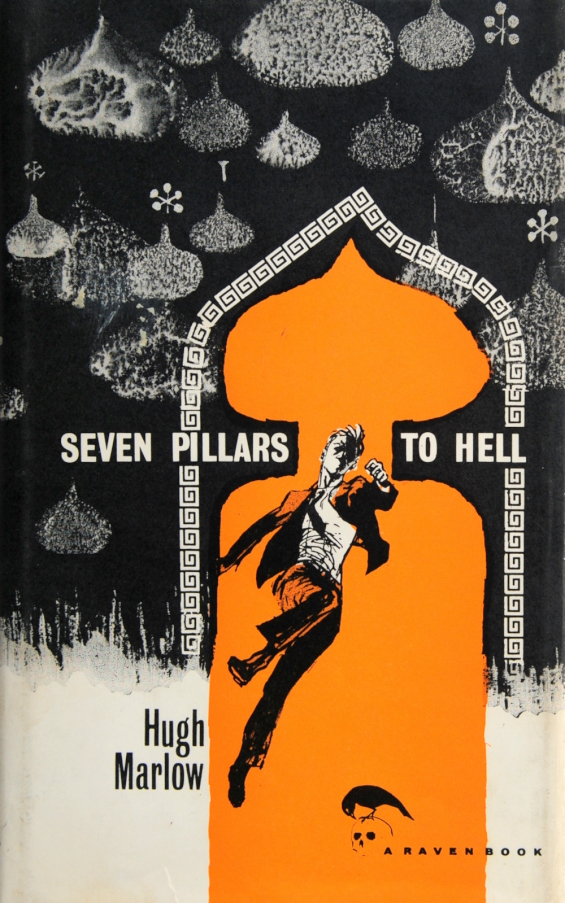

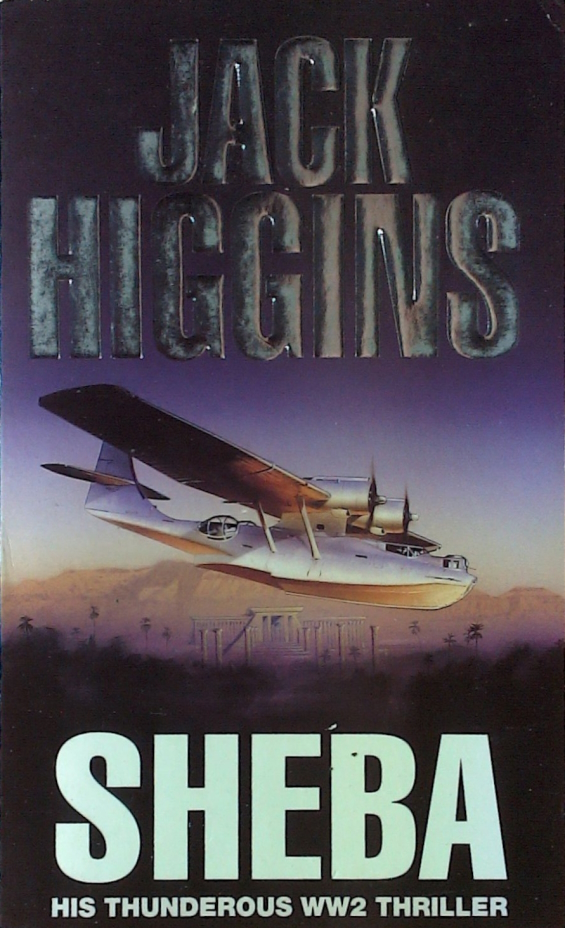


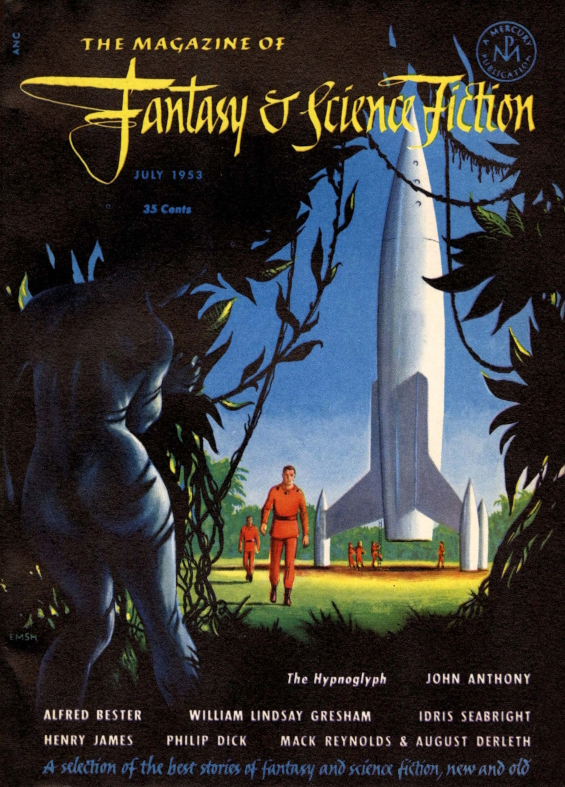
Posted by Scott D. Danielson Become a Patron!


